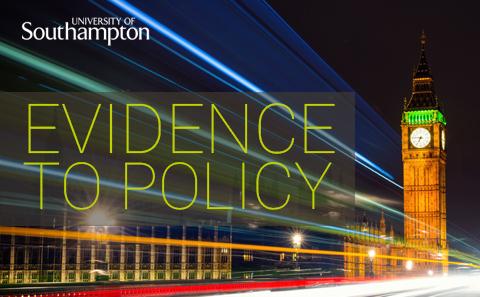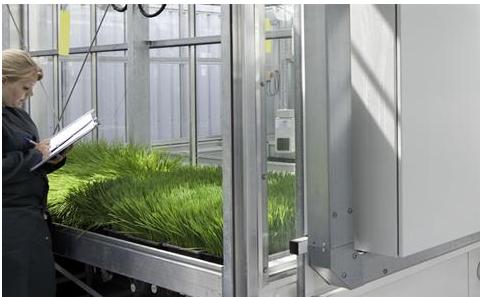
Evidence to Policy
Read more blogs from researchers at the University of Southampton navigating the journey between evidence and policy

All my adult life, the international community has grappled with issues of sustainable development and climate change. It is 30 years since the publication of the Bruntland Report, at which time I was an impressionable six form pupil who believed that now we understood the problem, we would solve it quickly enough. Roll forward three decades and we see the creation of the IPCC (1988), the Rio Earth Summit (1992), the Kyoto Protocol (1997), the Millennium Development Goals (2000), the Stern Review (2006) and the Paris Agreement (2015).
To say that no progress has been made over those 30 years is clearly untrue, but we all know the immense political challenges, and just this week, we have seen the US pull out of the Paris Agreement. Throughout the last three decades, CO2 levels have continued to rise, climate has continued to change and the discussion has been about adaptation and mitigation. I have teenagers of my own now, and I have not painted a positive picture to them of how the world will deal with the climate-created problems of the future. So to go to a serious international meeting to discuss not just living with climate change but actually reversing it, well that was – in all senses– a breath of fresh air.
This is not something being driven by the United Nations, the EU or the G7, but by the Commonwealth, and in particular the Secretary General, Baroness Scotland. The Commonwealth is an unusual international grouping by any reckoning. There aren’t many other fora where Canada, Kenya and Kiribati find themselves around a table, and there is a huge diversity in geography, wealth, and population amongst its members. Yet if the Commonwealth gets it right, that very diversity can be turned into a strength when it comes to global issues like climate change, which affect all countries but in vastly different ways. For some of the small island states, it’s an issue with threatens their very existence.
The University of Southampton is just developing a new strategic partnership with the Commonwealth Secretariat, across a range of priority areas. And as part of that, I was invited to a major one day event on Regenerative Development to Reverse Climate Change. The focus of the discussions was drawdown – defined as the point at which the concentration of greenhouse gases in the atmosphere begins to decline on a year to year basis. Surely an impossible dream? Well, maybe not.
An international group of researchers under the banner of Project Drawdown have examined and modelled the most substantive existing activities which contribute to reducing climate change. All are assessed for their cost, the CO2 emissions which can be saved, and the impact of scaling them up over the next 30 years. These activities include energy, land use, materials, transport, and the design of cities. Some of these activities reflect recent advances in science and technology, such as solar and wind power, but others are about just doing things differently. One of the more significant contributions to reversing climate change is the education of girls and the availability of family planning, as these two interventions will help reduce global population growth which is a major driver of increased emissions.
One of the key messages was to avoid thinking of the “top 5 solutions” or the “most important” – exactly the kind of question that politicians often ask. The work showed that action was needed across a large range of activities, but also that the priorities for individual countries would be quite different from others. However, to answer the basic question – is reversing climate change possible using today’s technology, the conclusion from this project appears to be yes.
The Commonwealth Secretary General, Baroness Scotland, is driving forward this work personally, in the run up to the COP23 climate change discussions later this year and the Commonwealth Heads of Government meeting in April 2018. Reversing climate change is – to say the very least – extremely ambitious, and requires more collaboration and co-operation across Governments.
Is it really possible that the Commonwealth – with its eclectic mix of 52 countries – can help to broker such an agreement? Is all of this just wishful thinking? Does the analysis stand up to scrutiny? We will need to wait and see, but for the first time in 30 years, I am feeling personally hopeful about mankind’s ability to sort out climate change, and it’s great that the University of Southampton will be working with the Commonwealth Secretariat on this agenda. After all, the University’s vision is to change the world for the better – what better way than this?
Gavin Costigan
Director, Public Policy|Southampton

Read more blogs from researchers at the University of Southampton navigating the journey between evidence and policy

Learn more about the research projects Public Policy|Southampton are currently working with